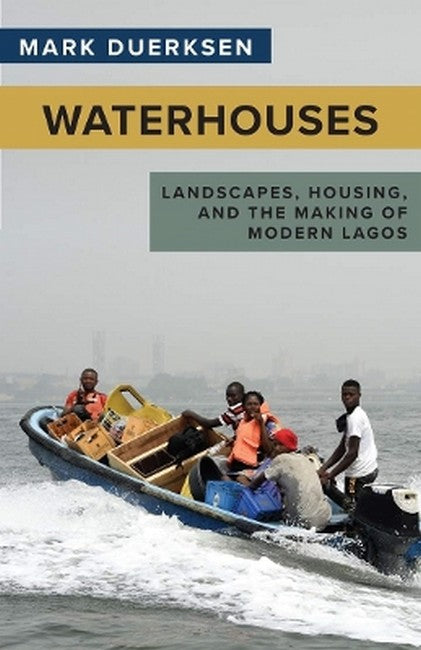Mark Duerksen is a research associate at the Africa Center for Strategic Studies in Washington, DC. His work has appeared in the Journal of West African History and the Johannesburg Salon, as well as in dozens of publications for the Africa Center. His work aims to make Africa's histories and cities understandable (and visible) to a larger audience, particularly policymakers.
Request Academic Copy
Please copy the ISBN for submitting review copy form
Description
This is one of the most engaging studies of Lagos I have read in some time, and I read a lot of work on Lagos. Its focus is on houses and landscapes, how each has been imagined, inhabited, governed, struggled over, and valued in every sense of the word. The book draws attention to the overlooked quotidian; it traces how deeply politicized houses and landscapes have been in Lagos since the colonial period, and how the legacies of the colonial upheavals regarding concepts of African homes and landscapes have been compounded through the eras of political independence, petrocapitalism, and now neoliberalism.', Abosede George, Barnard College and Columbia University 'Waterhouses burrows beneath and goes beyond the superficial physical or financial representations of houses in Lagos to unveil their contextual meanings, forms, and usage over the longue duree. This is a historically grounded, sensitively nuanced, and pathbreaking rereading of the visual archives--maps, building plans, photographs, archival documents, newspapers--aided by oral sources and lived experience. Mark Duerksenunpacks layers and dimensions of embedded history, politics, economics, power relations, planning, and architecture of the diverse physical structures and the watery terrainof a sandbank city lying precariously above sea level.', Ayodeji Olukoju, University of Lagos "Waterhouses burrows beneath and goes beyond the superficial physical or financial representations of houses in Lagos to unveil their contextual meanings, forms, and usage over the longue duree. This is a historically grounded, sensitively nuanced, and path-breaking rereading of the visual archives--maps, building plans, photographs, archival documents, newspapers--aided by oral sources and lived experience. Mark Duerksenunpacks layers and dimensions of embedded history, politics, economics, power relations, planning, and architecture of the diverse physical structures and the watery terrainof a sandbank city lying precariously above sea level."--Ayodeji Olukoju, University of Lagos

